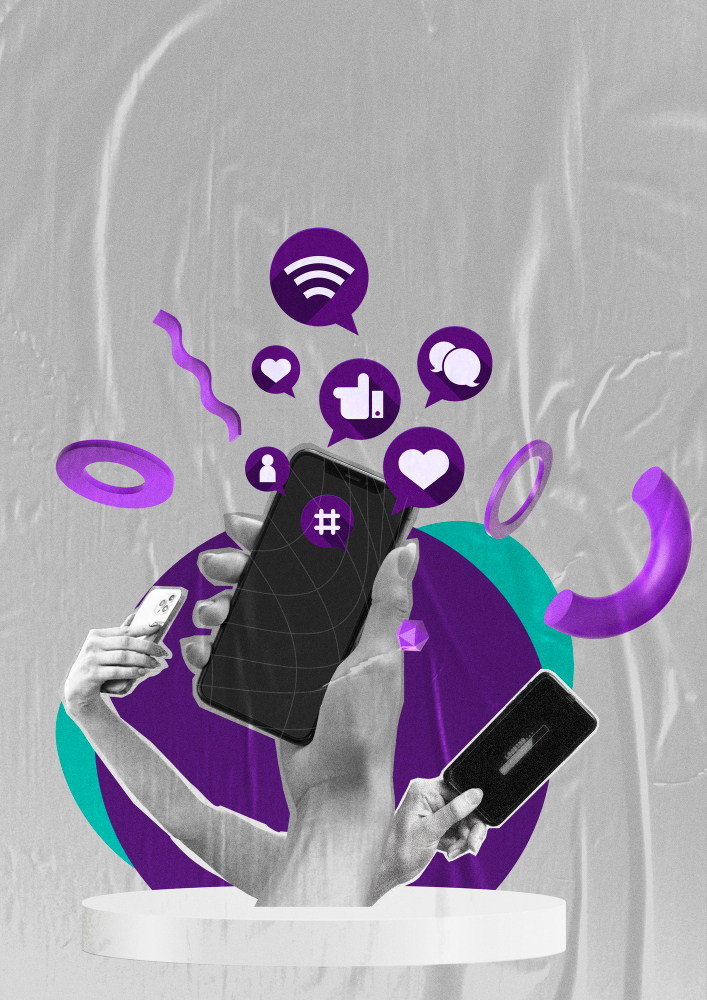
In today’s digital era, social media has evolved into a cornerstone of best social media website. With countless platforms to choose from, identifying the most suitable one for your business can feel overwhelming. Each platform offers distinct advantages, and the right choice depends on your specific goals, target audience, and available resources.
This blog delves into evaluating the top social media platforms for marketing, matching their unique features to different objectives. We’ll also explore how partnering with a social media marketing agency, utilizing social media marketing tools, and opting for customized marketing packages can help you maximize results effectively.
Why Social Media Is Vital for Marketing
Social media platforms collectively boast billions of users, making them invaluable for businesses aiming to expand their reach. They offer opportunities to:
- Boost Brand Awareness: Platforms like Facebook and Instagram enable businesses to showcase their offerings to millions of users daily.
- Enhance Customer Engagement: Social media fosters real-time interactions, allowing businesses to build trust and maintain strong relationships with their audience.
- Drive Website Traffic: Clickable links in posts, stories, and ads can direct a steady flow of users to your website.
- Generate Leads and Sales: Features like Facebook Lead Ads and LinkedIn’s B2B tools are designed to capture qualified leads tailored to specific industries.
Top Social Media Platforms for Marketing
Each social media platform serves a unique purpose, catering to different audiences and business needs. Let’s explore the most popular ones:
1. Facebook: A Versatile Marketing Giant
With over 2.9 billion monthly active users, Facebook remains one of the most versatile platforms for marketing. It allows businesses to:
- Target specific demographics with precision.
- Run diverse ad campaigns designed for engagement, traffic, or conversions.
- Leverage detailed analytics to track and improve campaign performance.
A professional social media marketing agency can assist in creating and managing highly effective Facebook ad campaigns that align with your business goals.
2. Instagram: The Visual Marketing Powerhouse
Instagram, with its 1.4 billion active users, is a go-to platform for visually-driven marketing strategies. This platform is especially beneficial for:
- Showcasing products through visually appealing Stories, Reels, and posts.
- Collaborating with influencers to reach larger audiences.
- Building brand identity through aesthetic and creative visuals.
Tools like Canva and social media marketing automation software can simplify the process of designing engaging posts for Instagram.
3. LinkedIn: The Professional Connection Hub
For B2B marketing, LinkedIn is unmatched. It is an ideal platform for:
- Sharing industry insights and thought leadership articles.
- Generating qualified leads through LinkedIn Ads.
- Networking with professionals in your niche.
LinkedIn’s structured advertising tools make it an excellent choice for companies focusing on B2B relationships and professional growth.
4. YouTube: The Video Marketing Leader
As video content continues to dominate online engagement, YouTube remains indispensable. It helps businesses:
- Share tutorials, product reviews, and behind-the-scenes content.
- Run targeted video ads to reach specific audiences.
- Build a loyal subscriber base for long-term marketing success.
YouTube marketing requires advanced tools for video editing, SEO optimization, and analytics to maximize visibility and engagement.
5. TikTok: A Platform for Creative Storytelling
TikTok has quickly risen as a favorite for younger audiences, especially Gen Z. Its strength lies in:
- Viral challenges and creative content trends.
- Short-form video ads that capture attention quickly.
- Influencer partnerships that amplify brand exposure.
Brands that adopt TikTok’s unique and fun content approach often achieve exceptional engagement levels.
6. Twitter: A Real-Time Communication Tool
Twitter excels as a platform for real-time updates and discussions. It’s particularly effective for:
- Establishing brand voice and authority in trending topics.
- Engaging with customers in real-time conversations.
- Driving traffic through concise, impactful tweets containing clickable links.
7. Pinterest: A Hub for Inspiration and Discovery
Pinterest serves as a powerful platform for visual content marketing. It is ideal for:
- Driving traffic to e-commerce websites through Pins.
- Showcasing DIY, fashion, and home decor ideas.
- Building a long-lasting, visually appealing brand identity.
How to Choose the Right Social Media Platform
The best social media platform for your business depends on several factors:
- Audience: Understand where your target demographic spends the most time.
- Content Type: Determine whether you excel at producing videos, photos, or text-based content.
- Marketing Goals: Clearly define whether your focus is on brand awareness, website traffic, or lead generation.
- Budget: Different platforms have varying advertising costs and social media marketing packages.
For example:
- Small businesses with limited budgets may prioritize Facebook and Instagram for their broad reach and cost-effectiveness.
- B2B companies should lean towards LinkedIn for its professional network and lead-generation capabilities.
- E-commerce brands can benefit greatly from Pinterest and Instagram due to their visual-centric nature.

The Role of a Social Media Marketing Agency
Collaborating with a social media marketing agency can significantly amplify your marketing efforts. These agencies provide:
- Strategic Planning: Developing tailored strategies that align with your objectives.
- Content Creation: Crafting compelling posts, visuals, and ad campaigns to engage audiences.
- Performance Tracking: Utilizing advanced tools to analyze campaign performance and provide actionable insights.
- Cost Optimization: Advising on the most suitable marketing packages to maximize ROI.
Must-Have Social Media Marketing Tools
The right tools can streamline your efforts and improve efficiency. Some of the best options include:
- Hootsuite: For scheduling posts and managing multiple accounts.
- Canva: For designing professional-grade visuals and graphics.
- Sprout Social: For detailed analytics and reporting.
- BuzzSumo: For content trend analysis and idea generation.
These tools help businesses save time, stay consistent, and track progress effectively.
Key Takeaways
The best social media platform for marketing depends on your audience, goals, and available resources. Platforms like Facebook, Instagram, LinkedIn, and TikTok each bring unique advantages to the table.
To unlock the full potential of social media:
- Partner with a professional social media marketing agency for expert guidance.
- Implement a comprehensive social media marketing strategy that aligns with your brand’s objectives.
- Leverage advanced social media marketing tools to streamline your efforts.
Conclusion
Choosing the right social media platform for marketing is a critical decision for any business. Platforms like Facebook, Instagram, and LinkedIn are powerful tools to connect with your audience, build brand awareness, and achieve your goals.
By investing in customized social media marketing packages and partnering with experts, you can elevate your marketing efforts to new heights. Take action today and start your journey toward digital success!
Frequently Asked Questions (FAQs)
1. Which is the best social media website for marketing?
The best platform depends on your goals. Facebook is great for versatility, Instagram for visuals, LinkedIn for B2B, and YouTube for video marketing.
2. What are the benefits of hiring a social media marketing agency?
An agency provides expertise in strategy, content creation, and analytics, helping you achieve better results with less effort.
3. How much do social media marketing packages cost?
Costs vary depending on the platform and services. Packages typically range from $500 to $5000 per month.
4. What tools should I use for social media marketing?
Hootsuite, Canva, and Sprout Social are popular tools for managing, designing, and analyzing campaigns.
5. How do I create an effective social media marketing strategy?
Define clear goals, choose the right platforms, post high-quality content, and use analytics to measure success.


